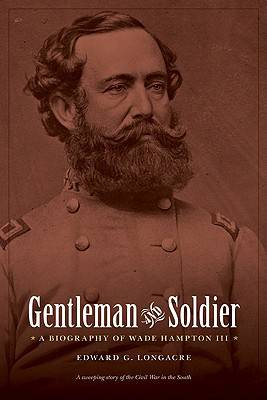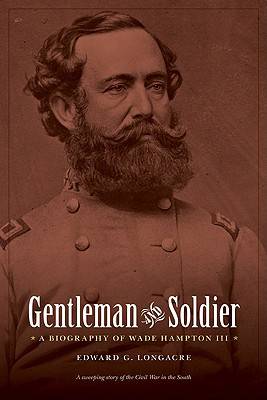
- Afhalen na 1 uur in een winkel met voorraad
- Gratis thuislevering in België vanaf € 30
- Ruim aanbod met 7 miljoen producten
- Afhalen na 1 uur in een winkel met voorraad
- Gratis thuislevering in België vanaf € 30
- Ruim aanbod met 7 miljoen producten
Zoeken
€ 31,95
+ 63 punten
Omschrijving
Winner of the Douglas Southall Freeman History Award, Gentleman and Soldier is the first biography in more than fifty years of Wade Hampton III (1818-1902), a Confederate general whose life provides a unique, sweeping insight into the entire history of the Civil War in the South. Hampton was a leading citizen of South Carolina before the war and the highest-ranking cavalry leader on either side during the war. He fought in a remarkable number of battles from Antietam to Gettysburg to Bentonville and after the war served as governor of South Carolina and in the U.S. Senate.
Hampton's life, however, was one of dramatic contradictions. He was the quintessential slave owner who nonetheless questioned the ethical underpinnings of the "peculiar institution." He was a prewar spokesperson for national unity but became an avid secessionist. He condemned violence and abhorred dueling, but he probably killed more opponents in battle than any other general with the possible exception of Nathan Bedford Forrest. He "redeemed" South Carolina from Reconstruction but then extended more political benefits to African Americans than any other Democratic governor in the postwar South. For more than forty years he gave selflessly of himself to his state and his community, not only when wealthy but also when teetering on the abyss of poverty.
Hampton's life, however, was one of dramatic contradictions. He was the quintessential slave owner who nonetheless questioned the ethical underpinnings of the "peculiar institution." He was a prewar spokesperson for national unity but became an avid secessionist. He condemned violence and abhorred dueling, but he probably killed more opponents in battle than any other general with the possible exception of Nathan Bedford Forrest. He "redeemed" South Carolina from Reconstruction but then extended more political benefits to African Americans than any other Democratic governor in the postwar South. For more than forty years he gave selflessly of himself to his state and his community, not only when wealthy but also when teetering on the abyss of poverty.
Specificaties
Betrokkenen
- Auteur(s):
- Uitgeverij:
Inhoud
- Aantal bladzijden:
- 352
- Taal:
- Engels
Eigenschappen
- Productcode (EAN):
- 9780803213548
- Verschijningsdatum:
- 1/05/2009
- Uitvoering:
- Paperback
- Formaat:
- Trade paperback (VS)
- Afmetingen:
- 152 mm x 226 mm
- Gewicht:
- 476 g

Alleen bij Standaard Boekhandel
+ 63 punten op je klantenkaart van Standaard Boekhandel
Beoordelingen
We publiceren alleen reviews die voldoen aan de voorwaarden voor reviews. Bekijk onze voorwaarden voor reviews.








